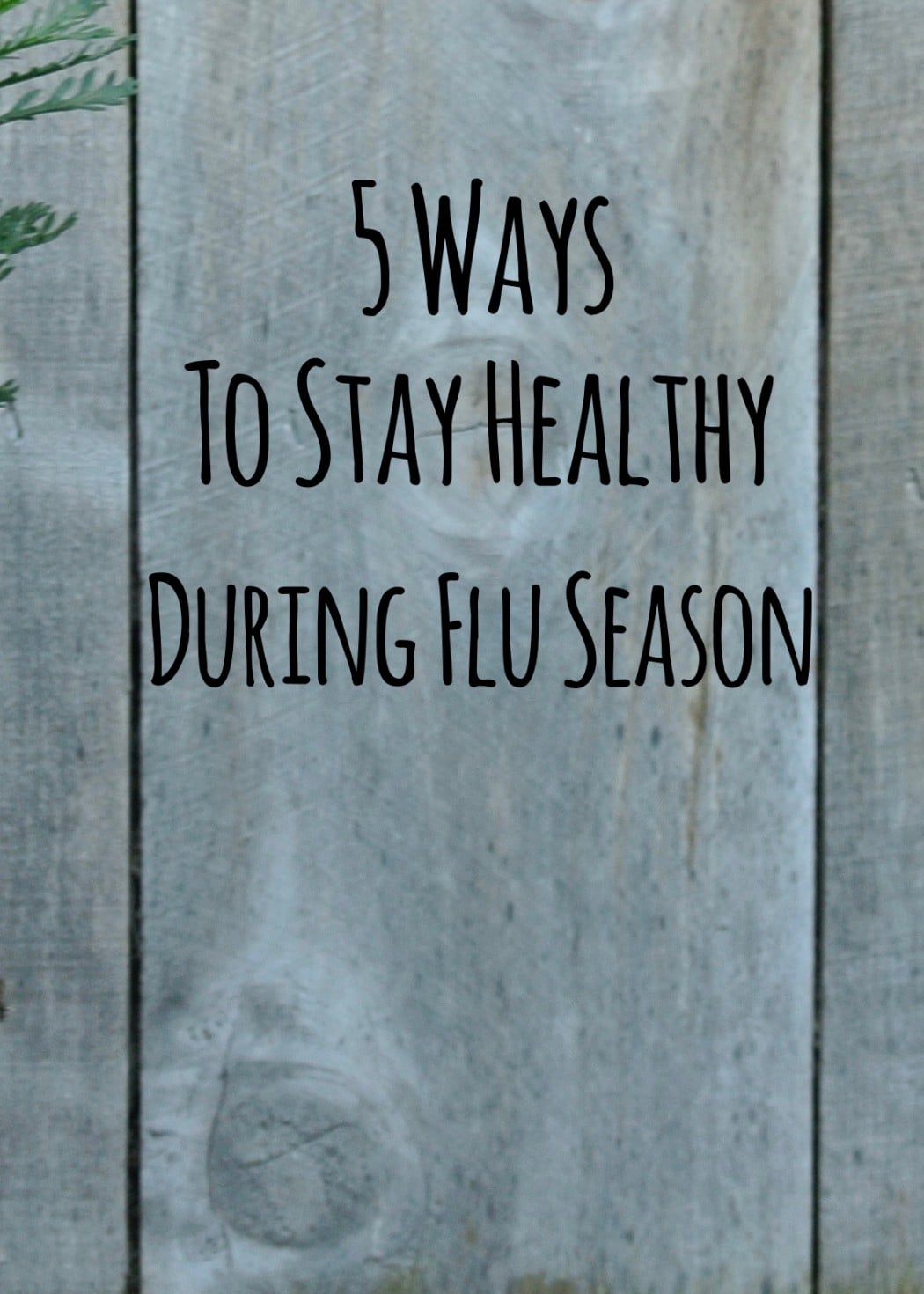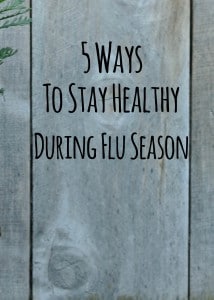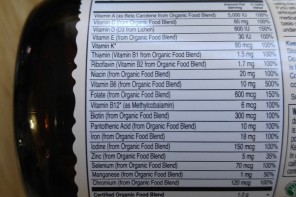Flu and sickness season has arrived now that the weather is colder, school session is in full swing, and people are doing more traveling. It’s especially tough if you have small children because we want our kids to stay healthy, but they like to touch everything.
The first time Dominik caught a cold was probably harder on me than it was on him. It was only a little cold; he had a low fever and a stuffy nose. But I just felt so bad for his lethargic and sniffly little self. It’s important to remember that kids (and adults) will get sick every now and then. When sickness happens, a healthy body usually knows how to heal itself and it’s immunity grows a little stronger. So the idea is just not to help prevent illness, but to help the body to heal faster if something is caught.
1. Healthy Diet
We have been shown again and again that it matters what we put into our bodies. A body that is filled with animal products, chemicals, sugar, alcohol, caffeine, and unhealthy foods is not going to function at it’s best. So it’s no surprise that an immune system that has been fed cheetos and soda will not be the strongest to fight off infection. Feeding our bodies, and our children’s bodies, whole foods (Grains, legumes, vegetables, and fruits) will help our immune systems to be working at their best. The great thing is that these healthy foods contain several vitamins that specialize in helping us to stay healthy.
Vitamin A is a vitamin that can be beneficial both in utero and throughout life. Scientists recently discovered that if maternal intake of vitamin a was adequate, the immune system (specifically lymph nodes and other features) of the fetus developed properly. They even found that adequate vitamin a intake after birth was not enough to reverse the impact of a prenatal deficiency. Unfortunately, too much vitamin a can cause certain birth defects, but levels that are too high are either obtained from supplementation or from eating too much liver. Vitamin a is abundant in vegetables, which you can’t get too much of, so don’t worry if you went crazy on the sweet potatoes while pregnant. Outside of pregnancy, vitamin a is a powerful immune booster, and foods containing it should be abundant in our diets.
Vitamin C is a well known staple for a healthy immune system and cutting down the duration of sickness. Aside from keeping the body working properly (which fends off illness in itself), it may help to destroy viruses and bacteria. As with vitamin d, a deficiency in vitamin c can mean a weaker immune system. Vitamin C is abundant in healthy fruits and vegetables like oranges, strawberries, leafy greens, and broccoli.
Vitamin D is a vitamin that can be harder to get through a vegan diet because it is mainly in animal sources. Recent studies are showing just how important vitamin d is to the human body. We need it for healthy and strong bones, but it is also essential for a working immune system. It has been shown that people with a vitamin d deficiency are more likely to have autoimmune troubles as well as are more likely to get sick. This signals that the immune system is not working properly. Having enough vitamin d means you are less likely to catch an illness and keeps your immune system working how it should. Vitamin D can be obtained through a vegan diet (like mushrooms) and supplementation but the best source is from sunlight. It makes sense that the season we are the most hidden from the sun is also the worst for illness. So around the colder months, and if you are vegetarian, it’s a good idea to supplement.
There are many other vitamins, minerals, and nutrients in healthy, whole foods that will help the immune system to both fend off illness and to heal quickly. Steering clear of animal products, preservatives, sugar, and artificial ingredients means more healthy things like fruits, vegetables, grains, and legumes will end up powering up our bodies.
2. Elderberry
This is a yummy way to boost your immune system, especially if you are around someone who is ill or are traveling with a large crowd. This is a plant that has been used for centuries to treat illness and studies on the effects of elderberry on the immune system are extremely promising. It may have anticancer, antiviral, and anti-inflammatory effects. It has been also shown to reduce the severity and duration of illness. Taken as a syrup, it can be taken everyday as a preventative or several times throughout the day to either treat an illness or prevent one if you were in direct contact with someone who was ill. It’s pretty easy to make, but can be found in your local health food store. It’s a great source of Vitamin C which is another great immunity booster.
3. Probiotics
The gut needs healthy bacteria. But with today’s overuse of antibiotics and with antibacterial products everywhere, the bad bacteria are winning. Good bacteria, or the kind of bacteria that works with our body instead of against, keeps the body’s digestive system working properly. They prevent harmful microbes from multiplying and invading the body. They also ensure that the digestive system is healthy and secreting the necessary antimicrobial products. Probiotics can be found in yogurt, fermented foods like sauerkraut, and in supplement form. These should be taken year round for good health, but are especially beneficial in staying healthy during flu season.
4. Wash your hands
Bacteria and viruses most common enter our bodies through either the air or directly through touch. When the average person touches their face about three times per hour. Rubbing your eye after grabbing a door knob? A great way to introduce a germ. It’s fine and normal to be exposed to germs on a normal, daily basis, and there’s no reason to scrub your hands after touching every object. But washing or sanitizing your hands after using the restroom or touching commonly used public items should be a priority. When good old soap and water aren’t available, sanitizers that are made with lavender oil or thyme oil make a great alternative to conventional hand sanitizers. Antibacterial sanitizers contribute to the presence of “superbugs”, so sticking to regular soap and natural sanitizers can keep you healthy and prevent antibacterial overuse.
5. Relax
By relax I mean two things: sleep and try to avoid stress. If you are a parent or a college student, you are probably laughing at this, but this should be a much bigger priority. When possible, go to sleep as early as you can and sleep until you absolutely have to get up. Sleep is the time that the body and brain get to rest and heal itself. When a person is not rested enough, their immune system does not work properly. Scientists are finding that white blood cell count, the cells that are the warriors of the immune system, goes down when we don’t get enough sleep. When we stress too much, it effects us in the same way. Plus, cortisol, which is secreted while stressed and sleep deprived, also adversely effects the body and the immune system. So catch some z’s, try meditating, do yoga, enjoy that cup of tea…whatever you do, just relax.
Stay healthy!






